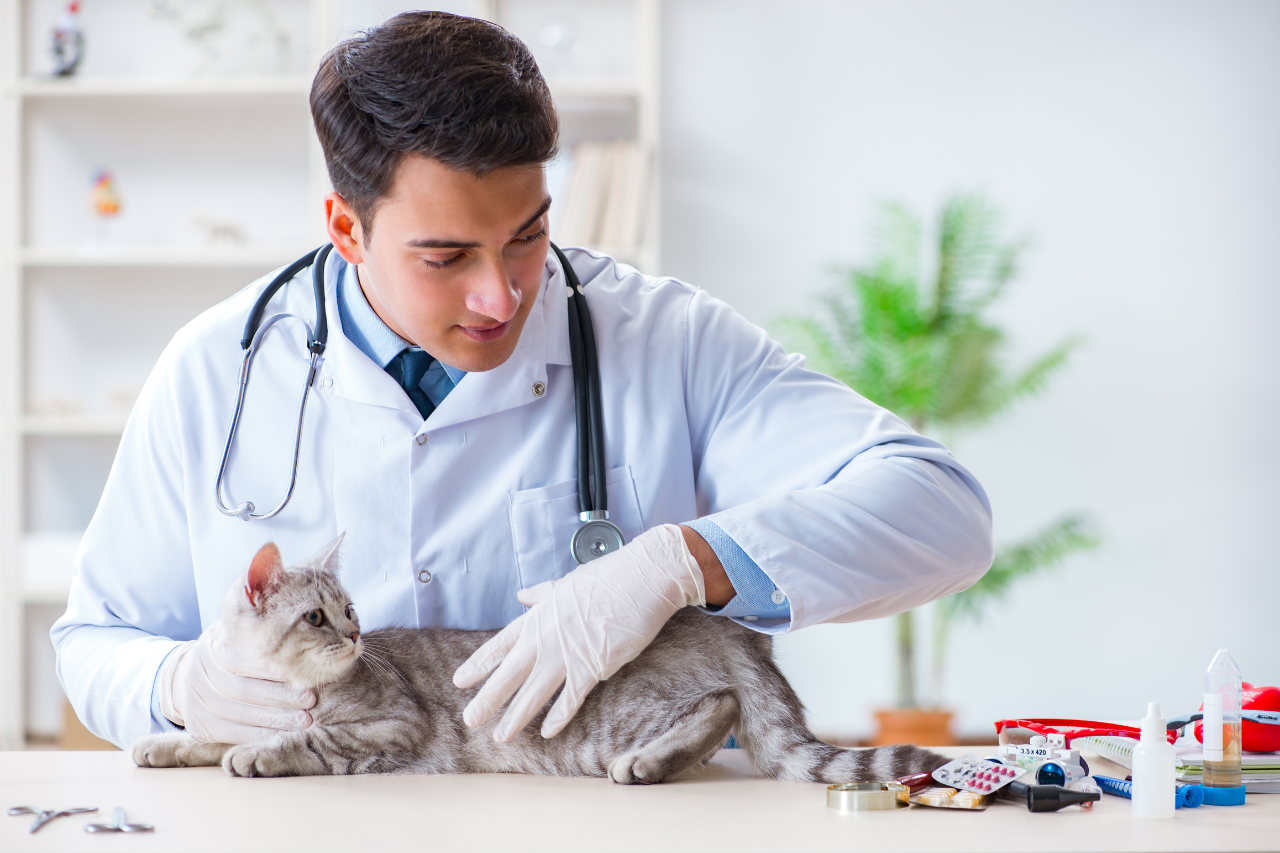
Unlock the Secret to Pet Longevity: Exploring the Top 7 Essential Benefits of Regular Vet Checkups for Your Furry Friends
As pet owners, we understand the joy, companionship, and unending affection our furry friends bring into our lives. However, our responsibilities stretch beyond regular feeding, grooming, and playtimes. Integral to our pets’ health and happiness is the role of regular veterinary checkups.
Much like us humans, our pets too require periodic health evaluations to ensure they’re in the best of health. Although your four-legged friend may seem hale and hearty from the outside, it’s crucial to remember that many health issues aren’t apparent to the untrained eye.
Regular vet checkups act as the first line of defense, helping to catch potential health problems before they escalate. In this article, we delve into the top 7 benefits of regular vet checkups. Our goal? To underscore the importance of this proactive approach in safeguarding our pets’ well-being and ensuring they live a long, happy, and healthy life.
The Role Of A Veterinarian In Pet Health
In the world of pet health, a veterinarian stands as the equivalent of your primary healthcare provider, a coach, and often, a lifesaver all rolled into one. They play an indispensable role in preventive care, creating a shield against a plethora of potential health issues.
A vet’s primary responsibility is to protect your pet’s health and wellbeing. While immediate care for sickness or injury is a significant part of their job, it’s just the tip of the iceberg. The larger, unseen part is preventive care, which is where regular checkups come into play.
During these checkups, your pet isn’t just getting a friendly pat and a treat. A routine vet visit starts with a thorough physical examination – vets use their expert eyes, ears, and hands to check your pet’s body, from the shine of their coat to the rhythm of their heart. They’re not just looking for lumps and bumps, but also for subtle signs like changes in weight, unusual sounds from the lungs or heart, or variations in your pet’s eyes, ears, or mouth.
This attention to detail doesn’t stop at the visible. Veterinarians are trained to spot clues you might miss – signs like a decrease in muscle mass could point to a nutritional deficiency, while slight limping might be the early onset of arthritis. These insights could be vital, as pets, especially cats and dogs, are masters at hiding pain and discomfort.
Moreover, these visits offer a chance to discuss your pet’s diet, behavior, and physical activity. All these elements form the pieces of a jigsaw puzzle that, when pieced together by a professional, provide a complete picture of your pet’s health. This proactive, preventive approach is your best bet to catch potential issues early and act on them effectively.
The Top 7 Benefits Of Regular Vet Checkups
Early Detection Of Health Problems
Imagine the possibilities if we could foresee health issues before they strike. For our pets, this isn’t a distant dream but a tangible reality, thanks to regular vet checkups. With their sharp diagnostic acumen, vets wield the power of early detection, helping to identify potential health issues while they’re still manageable.
A pet may be the picture of happiness, bounding around the house or purring contentedly on your lap. But remember, appearances can deceive. Our furry friends are natural actors, concealing their discomfort until it’s unavoidable. This inherent tendency to mask pain, coupled with an inability to verbally communicate their feelings, often delays the detection of health problems.
Enter regular vet checkups, the unsung heroes in this story. With their arsenal of medical tools and keen observation skills, veterinarians can spot signs of disease or injury that we may miss. From unusual heart rhythms to subtle changes in coat quality, each detail might be a breadcrumb leading to early diagnosis.
Consider, for instance, kidney disease, a common affliction in cats and dogs. Symptoms may not appear until 70% of kidney function has been lost. But regular blood and urine tests during checkups can reveal early signs of kidney dysfunction, enabling early intervention.
Preventive Care
Just as an apple a day keeps the doctor away for us, preventive care forms the bedrock of maintaining health and vitality in our pets. This isn’t merely about warding off the occasional sniffle; it’s about creating a formidable fortress of immunity that defends against an array of potential diseases.
The spearhead of preventive care is undoubtedly vaccinations. These medical marvels work like boot camps for your pet’s immune system. They train it to recognize and fight off dangerous diseases, such as rabies, distemper, parvovirus, and more. With a vaccination schedule tailored to your pet’s age, species, and lifestyle, your vet ensures they are equipped to resist these threats.
Then there’s the invisible menace of parasites. Heartworms, fleas, ticks – these tiny critters can wreak havoc on your pet’s health, causing discomfort, diseases, or in severe cases, even death. Routine deworming and timely administration of flea and tick preventives are the shields that protect your pet from these parasitic pests.
Additionally, preventive care isn’t a one-size-fits-all strategy. For instance, an indoor cat may not require as aggressive a flea prevention regimen as an outdoor dog. Your vet, understanding these nuances, will devise a preventive care protocol that is custom-built for your pet.
Nutritional Counseling
Nutrition is the powerhouse that fuels our pets’ lives. It supports their growth, fuels their playtime, and even shapes their behavior. However, not every meal in a shiny packet or fancy can is a golden ticket to pet health. Understanding the right balance of nutrients for your pet is an art and science, one that veterinarians master over years of study and practice.
Every pet is a unique universe with its own set of nutritional needs. Age, breed, weight, activity level, and health conditions all play a role in determining what your pet should eat and how much. The food that suits a growing Labrador pup won’t meet the nutritional needs of a senior Siamese cat.
This is where regular vet checkups come to the rescue. Veterinarians not only understand the complex matrix of pet nutrition, but they can also customize a diet plan tailored specifically for your pet. They can guide you on the type of food, serving sizes, feeding schedules, and even advise on supplements, if necessary.
For instance, an overweight dog might require a lower-calorie diet coupled with increased exercise, while a kitten may need food rich in proteins and fats for optimum growth. A pet with kidney disease could benefit from a diet with lower protein and phosphorus levels.
In short, veterinarians are the trusted nutritionists for our pets, and regular checkups are the platform where they decode and prescribe the perfect diet regimen.
Dental Checkups
A radiant smile is more than just a sign of a happy pet; it’s a testament to their overall health. Just as we pay attention to our oral hygiene, dental health is crucial for our furry friends, often serving as a window to their well-being.
Pet dental issues stretch beyond bad breath. They can lead to pain, tooth loss, and can potentially seed bacteria into the bloodstream, causing harm to vital organs like the heart and kidneys. By the age of three, many pets have some evidence of periodontal disease, which only underscores the need for regular dental checkups.
During a veterinary visit, your pet’s mouth undergoes a meticulous examination. The vet looks out for signs of dental disease such as inflamed gums, tartar build-up, oral lesions, or broken teeth. With the help of dental radiographs, they can even spot hidden issues beneath the gum line.
Treatments range from a simple cleaning, which can remove plaque and tartar, to more advanced procedures like tooth extractions for severe cases. They also advise on preventive measures, including special dental diets, chew toys, or tooth brushing, to ensure your pet maintains a bright, healthy smile.
Regular dental checkups ensure that your pet’s oral health is on point, contributing to a better quality of life and adding more bite to their barks and purrs!
Weight Management
In a world where pet memes celebrate chubby cats and pudgy pups, it’s easy to overlook the serious health implications of pet obesity. Just like in humans, excess weight in pets can lead to a plethora of health issues – diabetes, heart disease, joint problems, and even a shortened lifespan.
Navigating the slippery slope of weight management for pets can be tricky. That’s where your vet, the ‘personal trainer’ for your pet, steps in. Regular vet checkups are a valuable platform for monitoring your pet’s weight. Vets can assess your pet’s body condition, recommend an ideal weight range, and provide practical strategies to achieve it.
These strategies may include dietary modifications, exercise plans, and sometimes, even weight management programs for extreme cases. Regular follow-ups help track progress and adjust plans as needed. Regular vet checkups are a lifeline in your pet’s weight management journey, paving the path for a fit, active, and healthy life.
Regular Blood Tests
Blood tests in pets, much like in humans, are akin to a powerful magnifying glass, revealing key information about their overall health. During regular vet checkups, blood tests can detect early signs of diseases, even before your pet shows any symptoms.
For instance, a complete blood count (CBC) can flag conditions like anemia or infection, while a blood chemistry panel can provide data on your pet’s liver, kidneys, and pancreas. Tests like these can help catch potential health problems at their earliest and most treatable stage.
Moreover, blood tests also help vets monitor the effectiveness of ongoing treatments, providing tangible proof of progress or signaling the need for change. Regular vet visits, therefore, play a crucial role in this investigative journey, keeping a vigilant check on your pet’s health and guiding the course of their wellness journey.
Behavioral Analysis
The language of pets is a silent symphony of behaviors, a language that veterinarians are adept at interpreting. Behavior is a crucial, yet often overlooked aspect of pet health, encompassing everything from eating habits to play patterns and social interactions. Changes in behavior can signal anything from a medical problem to anxiety or stress.
Regular vet checkups give veterinarians the opportunity to assess your pet’s behavior and track any changes over time. This isn’t just about figuring out why your dog keeps chewing your shoes or why your cat isn’t using the litter box. It’s about understanding the ‘why’ behind these actions. Is it a lack of training, a medical issue, or a sign of anxiety?
Your vet can provide valuable insights, discerning patterns that may elude even the most observant pet parent. They can recommend appropriate interventions, from behavioral training methods to medication if required, or refer you to a specialist. Basically, regular vet visits can help ensure your pet isn’t just healthy in body, but also in spirit, enriching the bond you share.
Final Thoughts
As we wrap up this examination of the important advantages of regular vet checkups, it’s vital to acknowledge that these visits go beyond being mere appointments we mark on our calendars. They truly represent the promise we make to our pets – a promise to protect their health, whether they are unwell or in good shape.
As pet owners, we have a responsibility to understand and take care of our furry friends. Regular vet checkups give us the information and resources we need to fulfill this role. So, let’s make these visits a consistent part of our pet care routine, remembering the saying – prevention is better than cure.






